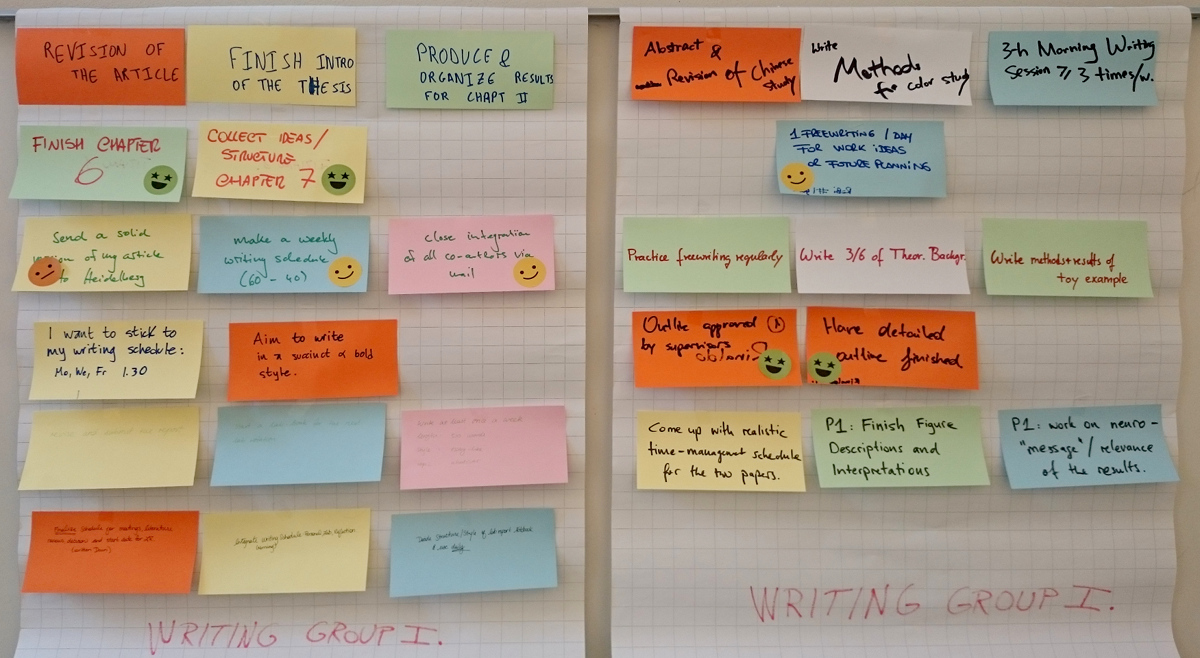
Follow-up to the the basic workshop Scientific Writing & Publishing
Writing groups provide an opportunity to develop scientific writing expertise, and act as a supporting framework helping participants achieve their writing goals.
Writing groups meet monthly over a period of 6–12 months. Each session lasts 2-3 hours and is highly structured in order to provide maximum benefits to the participants with the following elements:
- Goal setting & evaluation. Reflection about the past month and setting goals for the next month. Reflective freewriting and conversation with a peer.
- Q&A session and discussion of relevant topics.
- Peer feedback on participants’ texts.
Besides general writing groups with mixed participants, specialized writing groups are possible as well:
I. “Kickstart your PhD” writing group helps the beginning PhD students develop their scientific writing skills, get organized and build collegial and collaborative relationships with their peers. Participants learn to use writing as a support for their scientific thinking, start to consistently document their research activities and develop productive routines. At the end, participants appear as confident writers ready to tackle independent writing projects.
II. “Finish your PhD” writing group functions as a success team and accountability group, helping participants juggle multiple projects and responsibilities, overcome challenges and work consistently towards their writing goals. This format provides a framework for participants to prioritize and schedule their writing and remaining experimental work, reflect upon their progress, plan next steps, ask for advice and feedback, and get inspired and motivated through their involvement with struggles and successes of their peers.
Participant feedback
I learned to think about a text in a more structured way — writing & revising now seems less overwhelming.
The monthly goal-setting was very useful. It helped me to stay on track with my thesis.
I really like this format because it connects PhD students and makes them more aware of each other’s work.